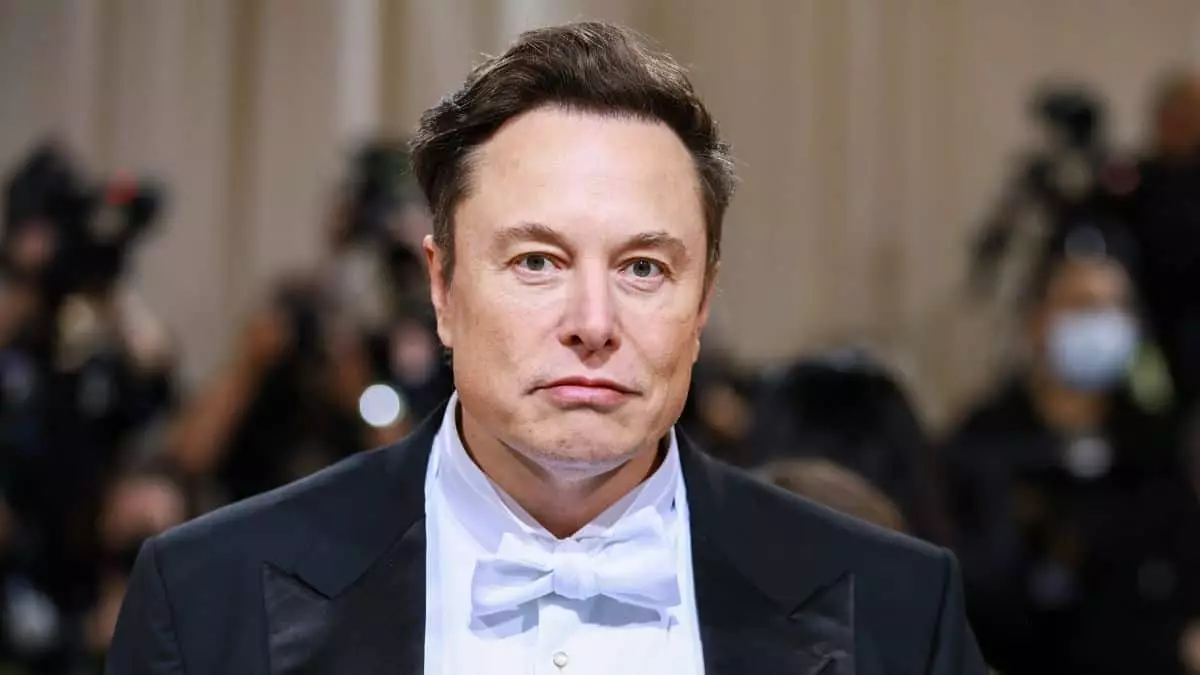Elon Musk, a figure renowned for his provocative opinions and entrepreneurial exploits, has turned his attention to the U.S. Department of the Treasury. As the prominent head of President Trump’s Department of Government Efficiency (D.O.G.E.), Musk recent remarks have raised eyebrows and sparked heated debates regarding government efficiency, accountability, and the integration of technological solutions. His assertions about fraudulent payments within the Treasury have not only called into question the actions of career officials, but they also sent ripples through the blockchain community. This article delves into Musk’s critique, the proposed technological solutions, and the broader implications for state governance.
On February 2, Musk expressed outrage on X (formerly Twitter), claiming that United States Treasury officials were “breaking the law every hour of the day” by approving unauthorized payments. Such incendiary statements underscore a critical concern regarding the operations of government departments. Musk’s assertion, albeit unaccompanied by concrete evidence, taps into a sinister narrative—career officials allegedly following directives to approve payments to “known fraudulent and terrorist groups.” This environment of alleged mismanagement necessitates a deeper inquiry into how governmental transactions are handled and the systems in place to prevent abuse.
Following these declarations, crypto commentator Mario Nawfal posed a provocative question: Should the Treasury adopt blockchain technology to mitigate these issues? Musk’s affirmative response ignited discussions about the potential benefits of blockchain as a tool for enhanced transparency and accountability in governmental financial transactions. Proponents argue that transitioning to a distributed ledger would create a robust, real-time record of all expenditures, effectively eliminating fraud and inefficient practices.
While blockchain advocates emphasize the immediacy and transparency that the technology could provide, they appear to overlook significant challenges that would accompany such a revolutionary transition. Moving institutional structures to an entirely new framework would demand not only technological upgrades but also considerable training and systemic buy-in from all stakeholders, including lawmakers, regulatory bodies, and public servants.
Highlighting practical applications of blockchain technology, podcast host Lindsay Poss pointed to Ukraine’s Transparent Network, which tracks reconstruction funds to mitigate corruption. Her example serves as a testament to the potential of blockchain, yet it also brings to light the complexities tied to widespread adoption. The success of such initiatives, particularly in combatting corruption, often relies on political will, public trust, and ongoing maintenance—factors that are not as easily attainable as mere technological implementation.
Crypto trader and analyst Aquino addressed potential challenges, warning of political resistance and the intricacies of overhauling antiquated systems. These concerns are valid; bureaucratic inertia, and a deeply entrenched status quo can be formidable barriers to innovation. Thus, while Musk’s suggestions seem promising, they invite a careful examination of the practical realities involved in shifting to a blockchain-based model.
Musk’s critiques and proposals present a larger narrative about the evolving relationship between technology and government. While blockchain presents an alluring solution to age-old inefficiencies, implementing such systems will require navigating a complex landscape of regulatory frameworks, technological integration, and political dynamics. The suggestions made by Musk and echoed by his followers return to a fundamental question: Can technology truly revolutionize governmental operations, or is it simply a tool that can be misappropriated if the underlying systems of governance remain unchanged?
Furthermore, Musk’s own recent encounter with the U.S. Securities and Exchange Commission (SEC)—over allegations of nondisclosure regarding his financial holdings—serves as a reminder that even the most influential figures are not beyond reproach when it comes to legal and ethical responsibilities. As he leads efforts to reshape government efficiency, his past actions may cast a shadow on the credibility of his advocacy for transparency.
While the discourse surrounding Musk’s proposals opens a crucial dialogue about government efficiency and the potential of blockchain technology, it is essential to approach these discussions with realism. The vision for a more transparent, efficient government is a worthy pursuit, yet it is fraught with complexities that must be diligently navigated to bring about meaningful change.
















Leave a Reply